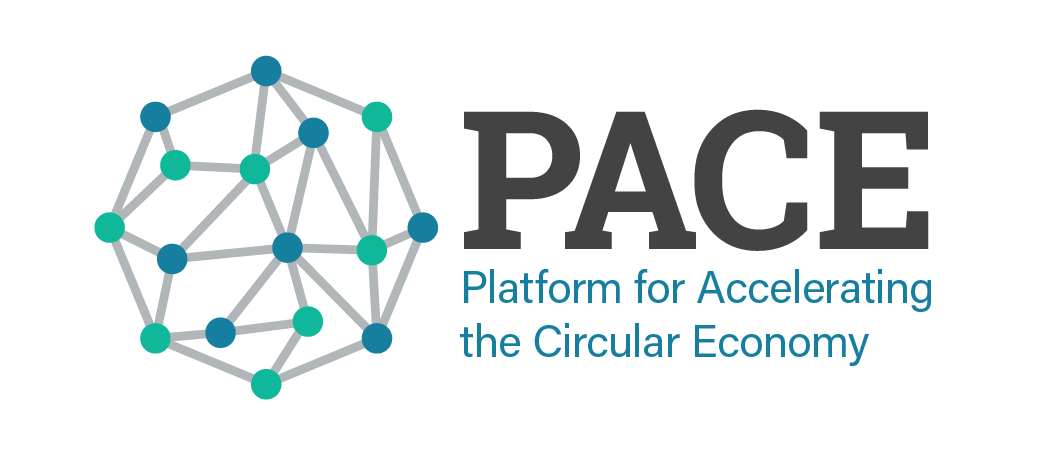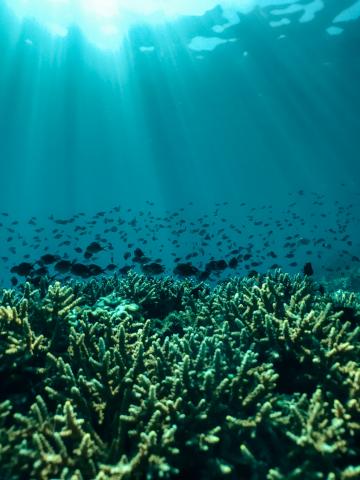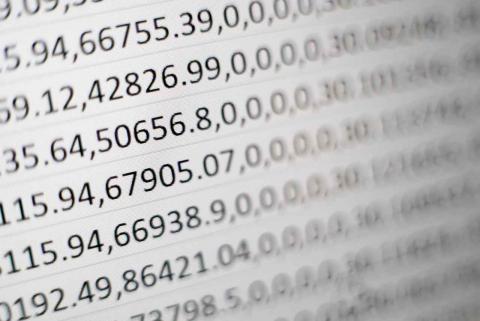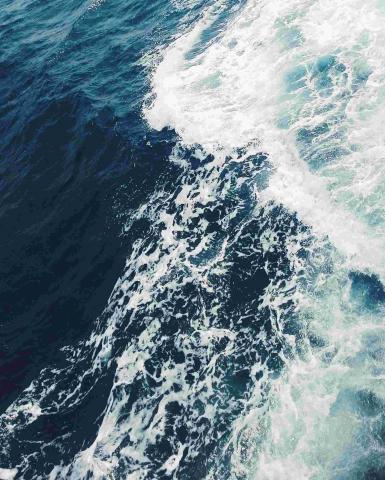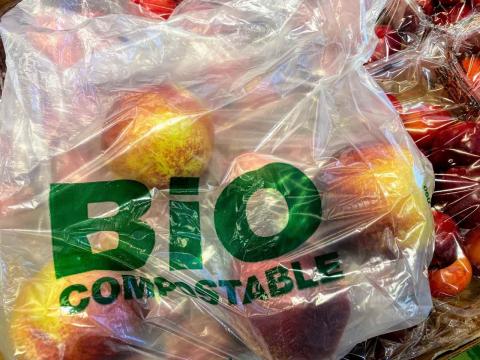Rethinking Plastics – Circular Economy Solutions to Marine Litter
This Action aligns with the following Calls to Action from the Circular Economy Action Agenda for Plastics
2. Incentivize and support product design for reuse and recycling of plastics
5. Guide and support news business models for environmental, financial, and social triple-win
Ambition
Rethinking Plastics aims to reduce plastic waste leakage into the sea. Its activities and pilot projects cover the management of plastic waste, sustainable consumption and production of plastic as well as the reduction of litter from sea-based sources. More than 20 pilot projects in China, Indonesia, the Philippines, Thailand and Vietnam will test new approaches or up-scale best practices. Knowledge exchange is fostered through policy dialogues, workshops and conferences, webinars and communication campaigns.
Objectives
The goal is to accelerate the EU/Japan policy and business dialogue on possible collaboration to create circularity in the market of plastics. For this purpose, Rethinking Plastics is working on a Policy Report on comparative analysis of the EU and Japan policy approaches to circular economy, plastics, and green public procurement. Currently, there are two ongoing policy and business dialogues on these topics.
Partners
IGES, European Union (EU), German Federal Ministry for Economic Cooperation and Development (BMZ), GIZ and Expertise France
Closing the Loop: Scaling up Innovation to Tackle Marine Plastic Pollution in ASEAN Cities
This Action aligns with the following Calls to Action from the Circular Economy Action Agenda for Plastics
6. Set-up functioning collection systems
7. Strategically plan sorting and recycling facilities in compliance with trade regulations
Ambition
Closing the Loop seeks to reduce the environmental impact of cities in ASEAN countries by addressing plastic waste pollution and leakages into the maritime environment. This project aims to make municipal plastic waste management processes more circular, to increase the rate of recovery and reduce the leakage of plastics into the marine environment.
Objectives
To support the achievement of this goal, this project has (1) developed an innovative digital tool to assist local governments in ASEAN countries to monitor and visualize plastic waste leakage and (2) engaged a cluster of ASEAN cities across a coastal basin or watershed area to develop joint actions plans, policies and bankable strategies to address marine plastic litter. Closing the Loop is accelerating action on plastic waste in ASEAN countries and sharing these commitments through relevant regional intergovernmental fora.
The project ran until April 2021 and built a foundation for future collaboration. From April 2021 onwards, the knowledge gained in the pilot cities is helping to generate funding opportunities to expand the approach in the region and research plastic waste streams and their impacts.
Partners
IGES and the Japan Ministry of Environment, UN ESCAP, Local governments in South East Asia, ASEAN and other partners, UOL, NGOs, universities and academic institutions
European Plastics Pact
This Action aligns with the following Calls to Action from the Circular Economy Action Agenda for Plastics
2. Incentivize and support product design for reuse and recycling of plastics
1. Agree which plastics can be eliminated and prepare the market to phase them out
Ambition
The European Plastic Pact is a public-private coalition – initiated by the Netherlands and France – that brings together governments and frontrunners from across the whole plastics value chain. They work together towards four goals aimed at (1) design for reusability and recyclability, (2) responsible use of plastics, (3) recycling capacity and (4) the use of recycled content. The Pact supports this work by offering a unique platform to exchange ideas, display good practices and discuss challenges, needed to build a new circular default for all to follow. The Pact runs till 2025.
This regional Plastic Pact is a part of the New Plastics Economy Initiative from the Ellen McArthur Foundation, of which the Plastics Pact Network is one of the elements to its approach.
Objectives
The pact has released the results of the first projects in the working groups and the first monitoring exercise. In the next months, its structural governance, including the finance mechanism, will be defined and it will achieve the roadmap outcome of identifying an agreed list of prioritized problematic and unnecessary items to be eliminated by Pact members.
Partners
The Government of the Netherlands, WRAP, the Ellen MacArthur Foundation
See the full list of signatories here
See the other Global Plastics Pacts here
Canada Plastics Pact
This Action aligns with the following Calls to Action from the Circular Economy Action Agenda for Plastics
1. Agree which plastics can be eliminated and prepare the market to phase them out
2. Incentivize and support product design for reuse and recycling of plastics
5. Guide and support news business models for environmental, financial, and social triple-win
Ambition
The Cananda Plastics Pact (CPP) is creating a circular economy in Canada in which plastic waste is kept in the economy and out of the environment. It is a unique multi-stakeholder, industry-led, cross-value chain collaboration platform which aims to tackle plastic packaging waste and pollution by bringing together businesses, government, non-governmental organizations and other key actors in the local plastics value chain. Canada Plastics Pact Partners are united, working together on achieving clear, actionable targets by the year 2025.
This national Plastic Pact is a part of the New Plastics Economy Initiative from the Ellen McArthur Foundation, of which the Plastics Pact Network is one of the elements to its approach.
Objectives
The Canada Plastics Pact seeks to define a list of plastic packaging that is to be designated as problematic or unnecessary and take measures to eliminate them. The overall aim is to have 100% of plastic packaging being designed to be reusable, recyclable or compostable. The necessary steps to reach this require taking ambitious actions to ensure that at least 50% of plastic packaging is effectively recycled or composted and an average of at least 30% recycled content is used across all plastic packaging. Upon its launch in January 2021, CPP is developing a roadmap to lay out the direction, strategies, and tactics for taking action to 2025.
Partners
The Government of Canada, Unilever
See the full list of signatories here
See the other Global Plastics Pacts here
Project QONNECT
This Action aligns with the following Calls to Action from the Circular Economy Action Agenda for Plastics
10. Investigate environmental and socio-economic impacts of renewable material inputs for plastics
3. Address hygiene and safety concerns to promote plastics reuse
Ambition
Project QONNECT aims to take the assessment of raw material cycles to a higher level, focusing specifically on plastic. It provides an overview of possible solutions according to stakeholders, based on the bottlenecks that hinder the transition to a circular economy within a particular supply chain. To improve the assessment of safety and quality, it looks at the presence of toxic substances in recycled plastic, among others, and it maps out the advantages and disadvantages of one specific solution. This is done both on a small scale, by analyzing clearly what reuse costs and yields us, and on a large macro-economic scale, to provide the whole picture and support companies, citizens and policymakers to make the right choices for the transition to circular economy.
Objectives
This project is working towards defining new indicators for the impact of substances on a macro-level and new methods to link local, regional and global impacts on biodiversity. In 2021, the specific objectives include developing macro-economic indicators for safety of substances.
Partners
RIVM,TNO, Radboud University Nijmegen
Project DIRECT
This Action aligns with the following Calls to Action from the Circular Economy Action Agenda for Plastics
2. Incentivize and support product design for reuse and recycling of plastics
5. Guide and support news business models for environmental, financial, and social triple-win
Ambition
DIRECT stands for designing inclusively for a safe and sustainable circular economy transition. It aims to contribute to circular economy transition agendas by (1) filling current knowledge gaps concerning the technical implementation of safe and sustainable circular design, and (2) stimulating the implementation of safe and sustainable circular design in innovation processes.
Objectives
Started in 2019 and continuing until 2022, DIRECTS will publish a factsheet and guidance on safe and sustainable by design that delivers a practical method that designers can use to determine the safety and sustainability of their product at the start of the design process. The methodology should also be able to support business practices, for instance in writing a business strategy. In addition, it contributes to the creation of a network of companies and people who collaborate with RIVM in developing this methodology.
Partners
RIVM, Wageningen University & Research, Nutricia
CirculariTeam
This Action aligns with the following Calls to Action from the Circular Economy Action Agenda for Plastics
9. Integrate and advance decent work in the transition to a circular economy in plastics
6. Set-up functioning collection systems
Ambition
DSM has helped to launch a cross-industry coalition, known as CirculariTeam®, to address the recycling and repurposing of end-of-use products made with Dyneema®, an ultra-high molecular weight polyethylene (HMPE). Formed by partners from different industries, the coalition aims to drive the transition towards renewable bio- and recycled based resources within its respective industries. CirculariTeam® provides a common platform to share knowledge, resources, and technical solutions with the aim to close the loop on the world’s strongest fiber.
Objectives
CirculariTeam® will focus on addressing seven primary themes related to the circularity of products made with HMPE: (1) Reverse logistics, (2) Recycle and reuse (3) Efficiency in production processes, (4) Separation of waste into material components, (5) Design for circularity, (6) Regulation, and (7) Information sharing.
Partners
DSM. Barnet, Barrday, FibrXL, Gleistein Ropes, Lankhorst Ropes, Marlow, MKU, NFM, NP Aerospace, Plastix, Point Blank, Samson, Teufelberger, Uvex
Policy Options to Eliminate Additional Marine Plastic Litter
PACE Partners IRP and UNEP are contributing to the following Calls to Action from the Circular Economy Action Agenda for Plastics:
2. Incentivize and support product design for reuse and recycling of plastics
1. Agree which plastics can be eliminated and prepare the market to phase them out
5. Guide and support news business models for environmental, financial, and social triple-win
Ambition
The ‘think piece’ Policy Options to Eliminate Additional Marine Plastic Litter aims at outlining the possible policy options that can create the enabling conditions to achieve the system interventions to reduce plastic leakage to the ocean to 5 million tonnes by 2040, and move further towards net zero by 2050. It was commissioned by the G20 to support the achievement of the Osaka Blue Ocean Vision, which voluntarily commits G20 countries to “reduce additional pollution by marine plastic litter to zero by 2050 through a comprehensive life-cycle approach”.
Objectives
In July 2021, the results of the research have been published in the think piece by IRP and UNEP.
Partners
IRP, UNEP
Bio Plastics Europe
PACE Partners IVL and Unilever are contributing to the following Calls to Action from the Circular Economy Action Agenda for Plastics:
2. Incentivize and support product design for reuse and recycling of plastics
5. Guide and support news business models for environmental, financial, and social triple-win
10. Investigate environmental and socio-economic impacts of renewable material inputs for plastics
Ambition
BIO-PLASTICS EUROPE will deliver sustainable strategies and solutions for bio-based plastics to support the EU-Plastic Strategy and promote circularity in the economy. It serves not only as a research project but also as an intervention that takes into account the transformations triggered by a new awareness of bio-based plastics. BIO-Plastics EUROPE aims for a participatory research and innovation process.
Objectives
BIO-PLASTICS EUROPE has seen a successful 2020 where it strengthened online communications, developed and started testing first bio-based and biodegradable materials, established a network and watched it grow to include more than 1000 stakeholders. In 2021, BIO-PLASTIC S EUROPE will strengthen the stakeholder network by organizing more workshops on bio-based and biodegradable materials. They are also aiming to make a Life-cycle Assessment (LCA) report available, as well as preliminary safety protocols and business models.
Partners
IVL and Unilever
Find the full list of partners here
Rethinking Ownership
PACE Partner Sitra is contributing to the following Calls to Action from the Circular Economy Action Agenda
- Guide and Support New Business Models for Environmental, Financial, and Social Triple-Win (Plastics, CTA 5; Textiles, CTA 4; Electronics, CTA 4)
Ambition
The overall ambition of Rethinking Ownership is to change the narrative on product ownership and circularity. Through this action, Sitra seeks to support businesses in adopting producer ownership models to reduce the consumption of materials and extend product-life. Additionally, it aims to provide information for decision makers in the EU on how the producer ownership models and the EU's sustainable product policy framework are key for mainstreaming circular business models.
Objectives for 2021
Rethinking Ownership's report has been published in December 2020 and it outlines how, by 2030, companies will have transitioned from simply selling products to renting, maintenance and returns. Sitra is now organizing workshops, studies and events on the topic.
Partners
Sitra (PACE Partner)
Pagination
- Previous page
- Page 3
- Next page
